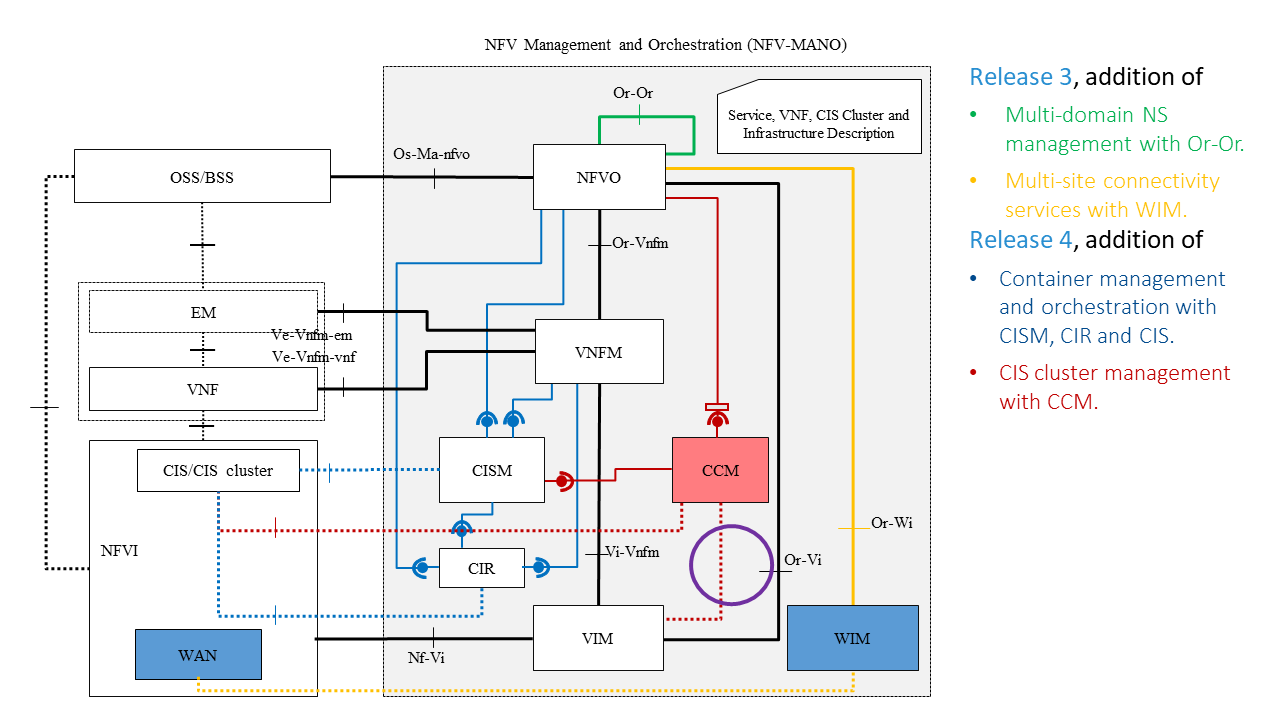
ETSI NFV Releases Architecture Enhancements to Support Cloud-Native Network Functions
SOPHIA ANTIPOLIS, FRANCE / AGILITYPR.NEWS / January 27, 2023 / The ETSI Industry Specification Group for Network Functions Virtualization (ISG NFV) has just published its next drop of specifications around new enhancements of the NFV architecture that will support cloud-native network functions.

The enhancements of the architecture enable the NFV framework to manage containerized VNFs (virtual network functions) as well as multiple OS (operating system) container clusters. The flexible management of the OS container clusters allows operators to create the necessary isolation of network functions as is needed in telco networks. At the same time the announcements allow a smooth evolution path for the operators’ NFV infrastructures, supporting virtual machine based and cloud native network functions in parallel.
From an architectural point of view, the newly delivered Release 4 version of ETSI GS NFV 006, which specifies the NFV-MANO architectural framework, includes, among other things, new logical functions related to container cluster management (CCM) and container infrastructure services management (CISM) that enable the management and orchestration of OS container clusters and the OS container workloads use to deploy cloud-native VNFs, respectively.
“The release of the first complete set of Stage-3 specification for containerized VNF lifecycle management by the NFV-MANO framework is a great milestone in ETSI ISG NFV to support cloud-native VNF workloads, which are becoming increasingly popular in telecommunications for 5G deployments, with standardized interoperable solutions. ETSI ISG NFV standards help to achieve transformation through the adaptation of cloud native in the telecommunication industry,” says Yoshihiro Nakajima, Chair of ETSI ISG NFV.

A subset of other specifications:
ETSI GS NFV-IFA 036 specifies the requirements for service interfaces and an object model for OS container cluster management. CCM’s functionality enables users to create and manage container clusters (e.g. Kubernetes® clusters) using bare-metal or virtualized resources. It thus provides a major benefit for the automation of complex container-based telco applications as well as the support for strong isolation between applications. The specification provides concept and architecture principles as well as the requirement level description. It describes the relation of the new functionality and its object model to other NFV functional blocks including the relation to the CISM.
ETSI GS NFV-SOL 018 profiles the reference Kubernetes® API as NFV protocol and data model solution for OS container management and orchestration and profiles the reference OCITM Distribution Specification API as NFV protocol and data model solution for OS container image management. Furthermore, ETSI GS NFV-SOL 018 provides a mapping of the NFV object model to managed objects of Kubernetes® and HelmTM as specified by the Cloud Native Computing Foundation (CNCF®), along with a specification of a mapping between a common set of input and output parameters associated with the referred managed objects. Profiling of de-facto standard open-source solutions has the benefit of adopting and integrating commonly used industry solutions into the NFV framework.
In addition, the ETSI group has released the first complete set of NFV Release 4 editions of ETSI GS NFV-SOL 001, ETSI GS NFV-SOL 002, ETSI GS NFV-SOL 003, and ETSI GS NFV-SOL 005, which provide enhancements of the specification of the VNF descriptor data model specification and enhancements to the protocols and data models of the interfaces on the main NFV-MANO reference points, respectively, in order to support the management of containerized VNFs.
About Us
About ETSI
ETSI provides members with an open and inclusive environment to support the development, ratification and testing of globally applicable standards for ICT systems and services across all sectors of industry and society. We are a non-profit body, with more than 900 member organizations worldwide, drawn from over 60 countries and five continents. The members comprise a diversified pool of large and small private companies, research entities, academia, government, and public organizations. ETSI is officially recognized by the EU as a European Standardization Organization (ESO).
For more information, please visit us at https://www.etsi.org/
Contacts
Links